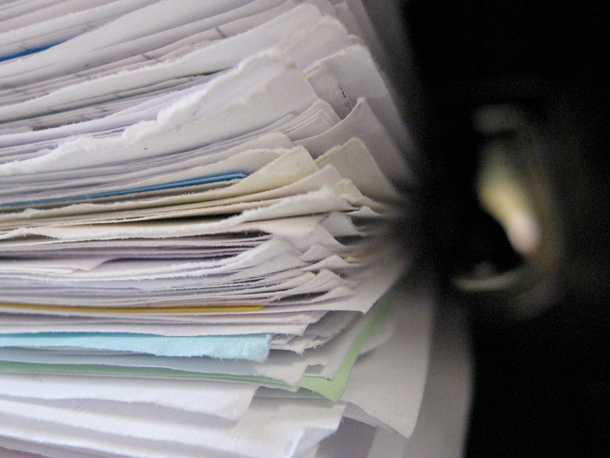
Buying a property in Colombia is not always what it seems.
Gerald Barr discovered that buying a flat was not quite as straightforward as it first appeared. In fact, he found more twists than the road to Choachí, with some interesting scenery along the way
My flat buying journey starts with Don Jairo, a small-time businessman who has fallen on hard times. His flat is large with well-lit rooms and views of the hills. When I first meet him he has already sold off most of the furniture and it looks like he sleeps on the sofa in his rumpled suit. He wants an initial deposit of half the flat’s value, a considerable sum.
The problem, he explains, is the flat is embargoed by the law courts: “I need the money up front to pay off a debt. Or the lawyers will take the flat and auction it to themselves for nothing,” he says, pushing a sugary tinto towards me across the packing crate that serves as a table.
I gulp. The initial deposit – paid at the contract signing, or promesa as it is called – is usually around 20%, with a second much larger payment made on completion. I really like the flat, and the price is very good, but paying 50% in the first shot is a big risk.
A pile of coffee-stained legal papers of cases going back two decades, relate the arc of Don Jairo’s financial freefall. Sitting behind the papers is the Agent, a freelance estate agent who Don Jairo has hired to sell the flat.
“Don Jairo is an honest man, but he has had bad luck”, says the Agent. Don Jairo stares at the wall and flicks cigarette ash off his sleeve. I get the feeling he does not like his Agent much.
I take a look at the legal papers. Don Jairo has faced a string of debt claims. “But most of them are small, or expired”, says the Agent, “and in most cases not his fault.” Don J cringes. I suspect he prefers to be seen as a crook than just unlucky.
Because I like the flat – and due to some kind of fatalistic curiosity to see how things will pan out – I agree to pay half up front. Don J is delighted. But I have two conditions. First, as part of the deposit I pay off the current debt directly to the people he owes, and their lawyers agree to lift the legal block on the flat. Second, I need to investigate all of Don Jairo’s historic court cases in case any are still pending. I walk out with the pile of legal papers.
Thus starts my quest into Don Jairo’s murky past. The risk is we lift one embargo, only to have lawyers pounce to activate dormant cases and snatch the property, meaning my deposit is lost. I need to sift through the reams of the original case files to check their status. They reside in the downtown judges’ offices- the juzgados – housed in dilapidated office blocks where lifts don’t work, there is no water in the toilets, and the stairwells reek of rot and musty files.
“Are you a lawyer?” barks the secretary through the partition when my turn comes. I mumble something in poor Spanish in the vague hope it might confuse her. It does. I give her a slip of paper with the case number. Finally the secretary opens a hatch and hands me a bundles of legal papers tied up in old manila string. But where to start? Legalese is hard in any language but particularly obscure in Spanish.
Luckily a young local lawyer waiting in the queue offers to help me. “You need to see if the cases are active or closed”, he explains, flipping through to the last pages. He is the first of several lawyers who in the coming weeks will spontaneously step forward to help me as I wander from office to office. They show me some of their tricks, like bringing a camera to photograph documents (which you are not allowed to remove from the offices). Eventually, even the secretaries thaw a bit and bring the files faster.

Piles of old legal documents needed to be poured over before the deal was done.
Back at the flat Don J and the Agent listen as I reel off the results of my ongoing search. Don J gets animated as he recalls former business foes.
“Cortez?” he snorts at the mention of one old case. “That was 15 years ago. The guy was an idiot. He deserved not to get paid. He can go to hell.” Perhaps he already has, I suggest, since it seems that this particular Cortez is now deceased. The Agent looks aghast. “Don Jairo is only joking”, he says.
After several weeks of checking bundles of files it seems that the cases are inactive. Internet searches reveal some old news stories on Don J’s business deals – one with a shady politician dispossessed for links to mafia. My Colombian friend shrugs it off. “If you look hard enough at anyone in business from that generation you will find some tenuous link to something unsavoury. Don’t be too quick to judge.”
So I go ahead. Clutching my banker’s cheque I meet with Don Jairo and we head to his lawyer, Don Lazarus. This old gent is 85 years old and still working five days a week from his worn leather chair in a wood-panelled office. Shelves of well-leafed legal tomes tell of a life immersed in law, though Don Laz is checking his iPhone when we walk in. Talk turns to old legal battles won and lost, family and fincas, and a recent scandal of a cartel of judges arrested for corruption.
After the first large payment it will take another six slow months to complete the purchase. Even with the main debt paid, the judges’ offices are slow to lift the embargo. Documents go missing, or come back with minor errors and need to be redone.
The wheels need greasing, claims the Agent. But this is a moot point, since, Don Jairo refuses to pay, I suspect for more financial reasons than ethical ones. But by now the delays are hurting him as much as me. He is ready to retire and go and live in the country cottage he has kept quiet from his creditors.
Christmas is coming so we decide on a seasonal gift to the judges’ offices. Don Jairo arrives, pimped up in a suit and polished shoes, holding a bag of small chocolate bars. In the first office he hands out the chocolatinas Jet with a gusty “Happy Christmas”. I trail behind him like Santa’s disgruntled elf. ‘I thought you would bring at least some wine for the judges,’ I complain.
‘It is not the gift, but how you give it,’ says Don J, stubbing out his Mustang in a stairwell plant pot. We enter the last office where he launches into banter with the legal clerks. The last chocolates are handed out, everyone is laughing, and we head out the door to the nearest café.
Over coffee, Don Jairo opens up about his business past. Things went bad years back with an order for a large client for expensive equipment. There was some disagreement over the quality. In the end the client, who was in the military, kept the goods but Don Jairo never got paid.
“I was that one man against the army”, he says bitterly. It broke his bank balance and, I suspect, his spirit, but he tottered on for years with a doomed business model of never paying debts and bogging down creditors in congested courts. If we finalise the flat sale, he says, he will pay back what he owes and retire with a clean slate. He flashes a smile. “Well, at least I’ll pay back the people that deserve to get paid.”
After Christmas, the legal papers are ready. Cheap chat and chocolate did the trick. I make the final payment and the flat is mine. Don Jairo hands me the keys and waves adios.
A week later, the Agent calls. “Have you seen Don Jairo?”, he asks. “He hasn’t paid me my fee for the flat sale and now he’s not answering my phone calls.”
“I am sure you will get your money”, I reply. “As you say, he is an honest man.”
By Gerald Barr




